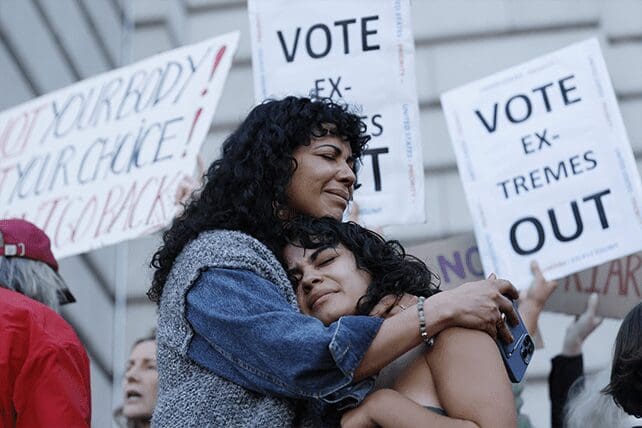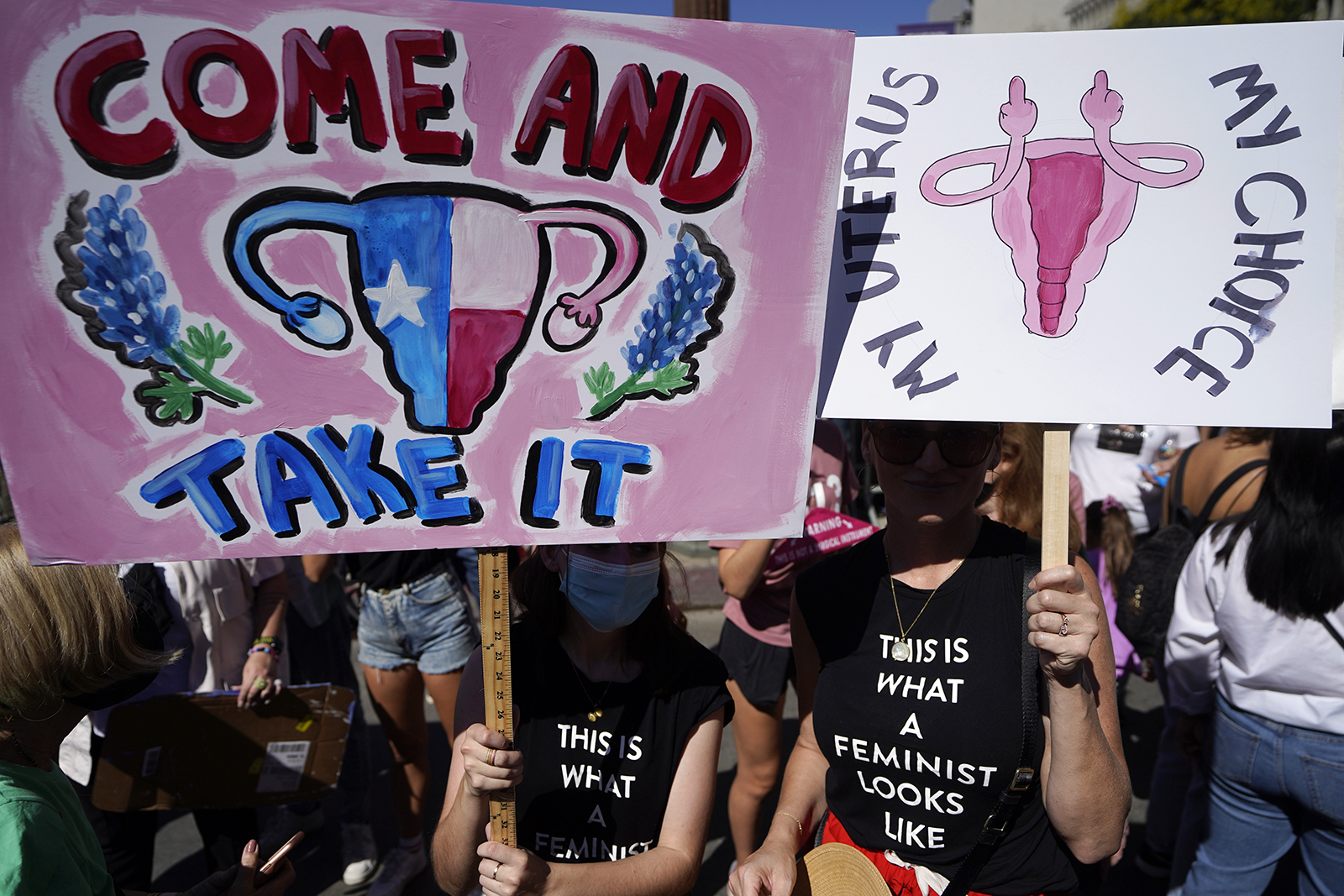(RNS) — Religious anti-abortion advocates in California may be celebrating the end of Roe v. Wade, but they face a push by their government to expand abortion access, even as other states enact bans on the procedure.
On the day the Supreme Court handed down the Dobbs v. Jackson Women’s Health decision, Gov. Gavin Newsom, signed a bill shielding abortion patients and providers from civil liabilities imposed by other states.
A package of other bills seeking to make California an “abortion sanctuary” is also moving through the legislature in Sacramento, including a measure that would enhance privacy protections for abortion related medical records. In November California voters will decide whether to enshrine the right to abortion in the state constitution.
In response, anti-abortion religious organizations such as the California Catholic Conference and the California Family Council are mobilizing their followers to stand against these efforts in a state where, according to a recent poll, nearly 80% of adults didn’t want Roe overturned.
Anti-abortion activists are rallying behind the state’s pregnancy resource centers and calling on residents to vote against the constitutional amendment on abortion, which, they say, is too broad and could allow late-term abortions. California law permits abortions up until fetal viability and allows a physician’s “good faith medical judgement” to determine when a fetus is considered viable.
The California Family Council, a nonprofit aiming to advance “God’s design for life, family and liberty,” said “pro-lifers should prepare to face more persecution than ever before,” as they “enter a new phase of the fight for life.”
Kathleen Domingo, executive director of the California Catholic Conference, has called on Catholics to recognize this as “our moment.” Acknowledging California as a “deep blue state,” Domingo said they had no illusion “that we were going to have any different outcome.”
“So many of us have worked for a large part of our lives to see Roe end and then to realize that as Roe is ending, in response California is increasing abortion — that is very difficult,” Domingo told Religion News Service.
Other faith leaders have publicly supported abortion rights. In early June, a multifaith group from California including Sikh, Muslim, Jewish, and Christian leaders met with Vice President Kamala Harris in Los Angeles.
Richard Flory, executive director of research and evaluation at the University of Southern California’s Center for Religion and Civic Culture, said that while evangelicals are a “shrinking part of the population” and the Catholic establishment show signs “out of step with their membership,” their efforts are “not going to go away.”
“They thrive on opposition … that people are against them for their beliefs,” Flory said. “Even though they made this huge victory, they’re not framing it as a victory.”
Flory pointed to the institutional religious power still wielded by the Catholic health systems affiliated with hospitals across the country. Hoag Memorial Hospital Presbyterian in Orange County, California, recently disaffiliated from Providence, a Catholic health system, filing a lawsuit to terminate the affiliation — a move supported by healthcare providers concerned that the partnership resulted in a “denial of basic reproductive rights.”
Demonstrators rally to demand continued access to abortion during the March for Reproductive Justice, Oct. 2, 2021, in downtown Los Angeles. On Dec. 8, 2021, a group of abortion providers and advocacy groups recommended that California use public money to bring people to California from other states for abortion services should the U.S. Supreme Court overturn Roe v. Wade. The report has the backing of key legislative leaders, including Senate President Pro Tem Toni Atkins, a Democrat. (AP Photo/Damian Dovarganes, file)


